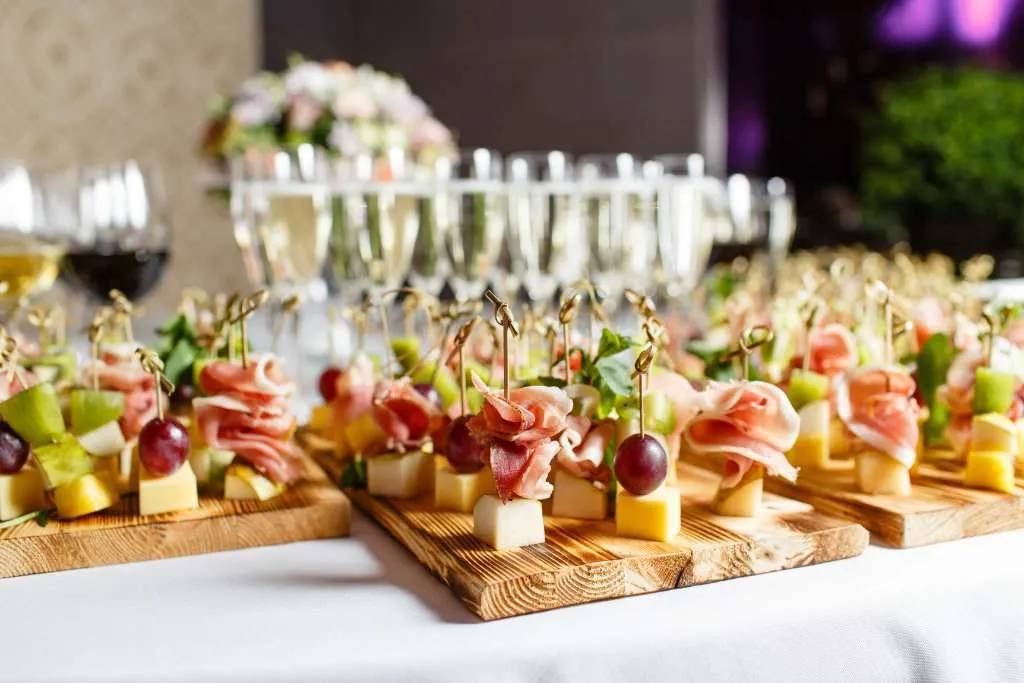Catering is far more than the simple provision of food at an event; it is an art form, a craft that blends creativity, logistics, and hospitality into an unforgettable experience. At its best, catering elevates an ordinary gathering into a memorable celebration, where every bite resonates with care and every detail is thoughtfully executed. As the events industry continues to flourish, the role of catering has evolved dramatically, reflecting cultural shifts, dietary preferences, and the increasing demand for bespoke experiences. This article explores the multifaceted world of catering, shedding light on its nuances and the delicate balance required to transform meals into moments.
At its core, catering is about hospitality—creating an environment where guests feel valued and comfortable. This mission begins long before the first dish is served. Successful caterers understand that every event is unique, and with that understanding comes the responsibility to tailor their offerings precisely to the client’s vision. Whether it is an intimate wedding, a corporate gala, or a large-scale festival, catering professionals work closely with event planners and hosts to design menus that not only delight the palate but also complement the occasion’s tone and theme.
One of the most critical elements in catering is menu design. Crafting a menu requires more than culinary skill; it demands a deep understanding of flavor profiles, seasonal ingredients, and dietary restrictions. Today’s diners are more discerning than ever, often expecting options that cater to allergies, ethical choices such as veganism, and cultural preferences. This complexity has pushed caterers to innovate, offering plant-based dishes that are as vibrant and satisfying as their meat-based counterparts, or gluten-free alternatives that never sacrifice taste or texture. The artistry in menu creation lies in balancing these diverse needs while maintaining a coherent gastronomic narrative.
Logistics form the backbone of any catering operation. Coordinating the timely delivery and presentation of food involves a symphony of synchronized efforts. From sourcing fresh ingredients and preparing meals under strict hygiene standards to managing staffing and equipment transport, the logistical demands are immense. Behind the scenes, caterers orchestrate everything with precision to ensure that food arrives at the perfect temperature, is plated attractively, and is replenished seamlessly throughout the event. Such coordination requires experienced professionals who can anticipate challenges and adapt swiftly to unexpected changes—whether it’s a last-minute guest addition or a sudden change in weather during an outdoor affair.
The aesthetics of catering cannot be overlooked. Presentation is integral to the dining experience, transforming food into an appealing spectacle that entices and excites. Innovative plating techniques, elegant table settings, and thoughtfully designed serving stations contribute to the overall ambiance, enhancing the visual appeal of the event. Modern catering often integrates trends such as interactive food stations, where guests engage directly with chefs, or themed decor that reflects the cuisine’s cultural origins. This attention to detail fosters a multisensory experience, where taste, sight, and atmosphere harmonize beautifully.
Sustainability has become a defining principle in contemporary catering practices. Conscious consumers increasingly demand that caterers not only produce delicious meals but also minimize their environmental impact. This ethos is reflected in sourcing local and organic ingredients, reducing food waste through careful planning and portion control, and utilizing eco-friendly packaging and disposable materials. Many caterers now embrace farm-to-table concepts, forging relationships with local producers to ensure freshness while supporting regional economies. By integrating sustainability into their business models, caterers demonstrate a commitment to both quality and social responsibility, resonating with an audience that values ethical consumption.
Technology also plays an influential role in modern catering. From online ordering platforms to sophisticated kitchen equipment, technology streamlines operations and enhances client communication. Digital tools allow for efficient menu customization, dietary tracking, and real-time updates, fostering transparency and collaboration between caterers and clients. Additionally, innovations like temperature-controlled transport containers and mobile cooking units have expanded the possibilities for outdoor and remote catering events, ensuring consistent quality regardless of location.
Catering is not without its challenges. The industry often operates under tight deadlines and high-pressure situations, demanding resilience and problem-solving acumen. Weather disruptions, fluctuating guest counts, and complex venue restrictions require caterers to maintain flexibility and composure. Moreover, the recent global health crises have underscored the importance of stringent safety protocols and adaptive service models, including individually plated meals or contactless delivery. These obstacles have tested the ingenuity of catering professionals, prompting a reevaluation of traditional practices and accelerating the adoption of innovative solutions.
Ultimately, catering is about crafting experiences that linger in memory long after the last course is cleared. It is the blend of meticulous planning, culinary artistry, and genuine hospitality that transforms food from a basic necessity into a source of joy and connection. The best caterers understand that they are not merely serving meals—they are storytellers, using ingredients and presentation to narrate the spirit of the event and the personality of the hosts. In this way, catering becomes an indispensable part of life’s milestones, enriching celebrations and fostering bonds between people.
As we look to the future, the catering industry will undoubtedly continue to evolve, shaped by emerging food trends, technological advancements, and shifting societal values. Yet, the essence of catering will remain the same: a dedication to excellence, a passion for creativity, and a heartfelt commitment to making every occasion exceptional. Whether it’s a lavish banquet or a modest gathering, catering holds the power to transform moments into memories, making it one of the most vital and rewarding professions in the world of hospitality.

